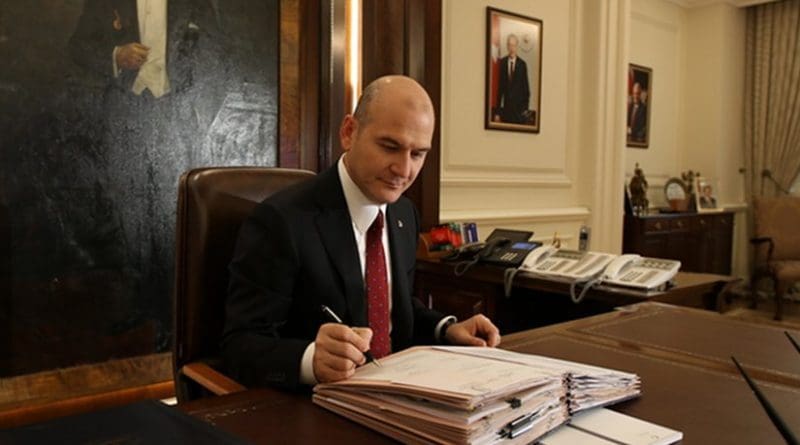Turkey’s Threat To Scrap EU Refugee Deal Questioned
Turkey is unlikely to act on recent threats uttered by Turkish Interior Minister Suleyman Soylu who said that they could send 15,000 refugees to Europe a month to shock Europeans.
Soylu issued the threat on Thursday following a diplomatic row between Ankara and Germany and The Netherlands, fuelled by the latter’s ban on allowing Turkish ministers to stage rallies there.
“We have a readmission deal. I’m telling you Europe, do you have that courage? If you want, we will send you 15,000 refugees to blow your mind. You have to keep in mind that you cannot design a game in this region in spite of Turkey,” Soylu said.
The minister was referring to the controversial readmission deal between the EU and Turkey to return migrants to Turkey who illegally cross the Aegean Sea to Greece.
“The current crisis is a ‘war of words’; it is not likely that Turkey would open its borders and send refugees into Europe and the Balkans,” Selcuk Colakoglu, a university professor and an expert on Turkish foreign policy, told BIRN.
He said the dramatic statements and the recent fallout in relations with some European countries should be read as part of the efforts of Turkey’s government to win votes in the upcoming referendum on granting the President more powers.
“Turkey wants to remind the EU of its role and of its importance to the EU these statements … The number of refugees is growing day by day in Turkey and the EU’s financial assistance as part of the readmission agreement between the EU and Turkey is more important than ever,” Colakoglu noted.
Colakoglu also said the divisive elections in The Netherlands – in which far-right leader Geert Wilders targeted an alleged Muslim threat to Dutch identity – had additionally fuelled tensions.
In the Turkish referendum on April 16, President Recep Tayyip Erdogan will be seeking support for constitutional changes that would effectively scrap the current parliamentary system and strengthen his own position.
Following the Dutch ban on Turkish politicians holding rallies, Erdogan accused the Dutch of “Nazism and fascism” and blamed The Netherlands for allowing the 1995 massacre of Bosnian Muslims, which took place in Srebrenica during the Bosnian civil war when Srebrenica was under Dutch peacekeepers’ watch.
The diplomatic crisis has been felt beyond Turkey and Holland. At a pro-Erdogan protest organized in Sarajevo, Bosnia, resident Turks and some Bosniaks echoed Erdogan’s accusations about Dutch responsibility for the Srebrenica massacre.
Last year, prior to the EU-Turkey agreement, EU countries were swamped by thousands of refugees from warn-torn and impoverished countries of the Middle East.
One of the main routes to the West led through the Balkan countries, starting from Greece to Macedonia, Serbia and then further north, causing many headaches for the local authorities, including humanitarian and security concerns.
According to a Turkish Interior Ministry report, which was released on February, the total number of refugees in Turkey is now over 3.5 million and Turkey has spent more than 25 million US dollars on looking after refugees up until now.

